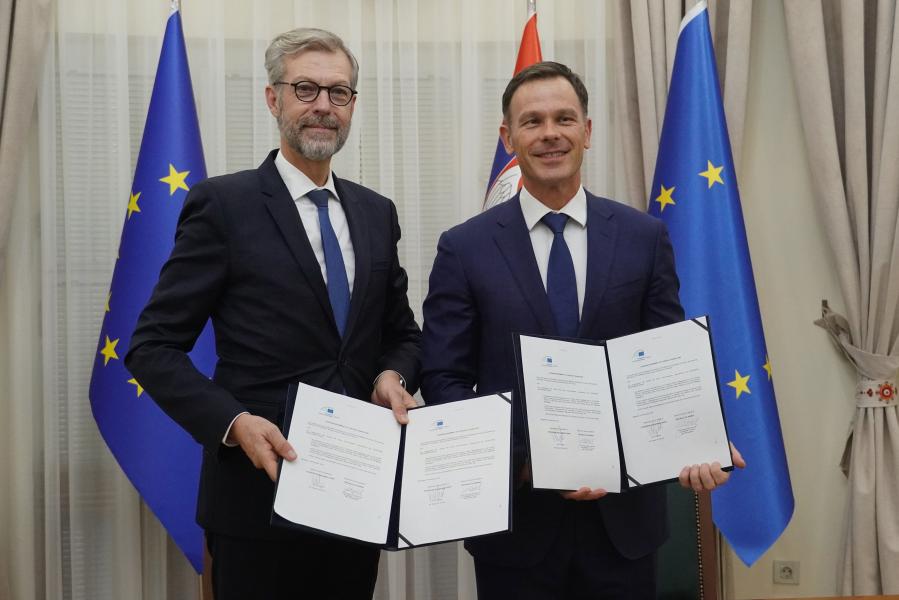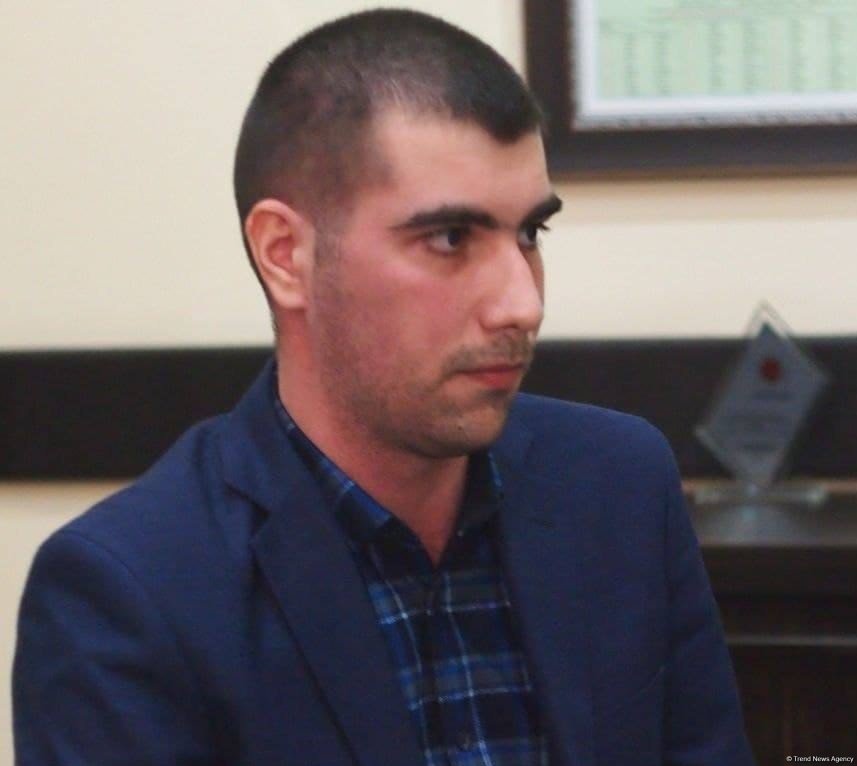BAKU, Azerbaijan, November 4. The European Investment Bank (EIB Global) is committing 192.5 million euros for Serbia to upgrade medical centers and sanitation infrastructure, Trend reports.
The EIB Global support package includes a 157 million euro loan and a 35.5 million euro EU grant to the Serbian government.
The loan will fund the reconstruction and extension of clinical centres in the cities of Belgrade, Novi Sad, Kragujevac and Niš. The project will help strengthen Serbia's healthcare system, enhancing access to high-quality medical services to meet evolving needs.
The grant provided by the EU under the Western Balkans Investment Framework (WBIF) will support the construction of a sewerage network in the Belgrade municipality of Palilula. The project will improve sanitation for around 86,000 residents.
“These investments will improve access to care and enhance the wellbeing of Serbian citizens,” said EIB Vice-President Robert de Groot, who signed the financing agreements today in Belgrade. “The result will be more efficient healthcare services and a cleaner environment.”
The EU grant provided under the Western Balkans Investment Framework is for the construction of a sewerage network in the central Belgrade municipality of Palilula. The project will improve sanitation for around 86,000 residents and protect public health.
EIB Global has committed almost 8 billion euros in financing to date in Serbia, covering projects across a broad range of sectors including transport, energy, research, education and the country’s private sector.
“The strengthening, modernization, equipping, and reconstruction of healthcare institutions are of strategic importance for the Government of Serbia, and with the help of partners such as the European Investment Bank, we are continuing the investment wave in healthcare,” said Serbian Minister of Finance Siniša Mali, adding: “Today we signed an agreement that enables us to continue investing in clinical centers in Belgrade, Kragujevac, Niš, and Novi Sad, marking the beginning of the second phase of major investments in these healthcare institutions. Serbia is being built, and I am proud of all the results we have achieved in the past decade.”
The European Union has been a dedicated partner to Serbia as the country pursues EU membership, supporting the development of key infrastructure. The loan for the clinical centers is backed by an EU guarantee under the European Fund for Sustainable Development Plus (EFSD+), while the wastewater project is supported through an EU grant.
“Clean water, healthy communities, and a greener future – this project brings much-needed infrastructure to a community that currently lacks a sewer network and wastewater treatment. It’s a win for Belgrade and for the Sava and Danube, two of Europe’s most important waterways that flow through Europe’s heart,” said Plamena Halacheva, Deputy Head of the EU Delegation to Serbia.
Minister for European Integration Nemanja Starović stated that the agreement is a significant contribution to the joint efforts of the Government of the Republic of Serbia and the EU in achieving European standards.
“Our strategic goal is accession to the European Union, and the reforms we are implementing along that path lead us not only to faster achievement of that goal but also to the accelerated development of the country and the improvement of living conditions for all citizens,” emphasized Minister Starović, adding that the wastewater investment signed today amounts to 85.4 million euros, of which over 35.5 million euros consists of an EU grant combined under IPA 3 with a 35 million euro EIB loan, while around 14.9 million euros represents an investment by the City of Belgrade.
The National IPA Coordinator and State Secretary at the Ministry of European Integration, Mira Radenović Bojić, said that with the implementation of this project, residents of the left bank of the Danube in Belgrade’s Palilula municipality will gain access to modern sewage infrastructure.
“Treated wastewater will be discharged into the Danube, significantly improving environmental conditions and public health for all residents of that part of Belgrade. During the construction of the facility and once it becomes operational, more than 200 jobs will be created,” said Radenović Bojić.







